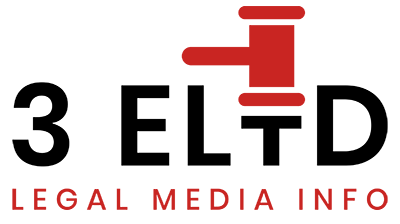In the realm of law, ethics form the cornerstone of professional conduct, guiding legal practitioners in their duties and responsibilities. Upholding ethical standards is not just a legal requirement but a moral imperative that underpins trust, integrity, and justice in the legal profession. In this article, we’ll delve into the ethical considerations that are paramount in law firm practice, emphasizing the importance of maintaining professional standards and integrity.
The Role of Ethics in Law Firm Practice

To reap the digital marketing benefits for your business and enhance exposure to potential clients, ethics in law firm practice play quite a significant role. It encompasses a wide range of principles and guidelines that govern the behavior and actions of lawyers, paralegals, and legal professionals. These ethical standards are designed to ensure fairness, honesty, confidentiality, competence, and loyalty in legal representation. By adhering to ethical codes and rules of conduct, law firms uphold the trust and confidence of clients, the public, and the legal system.
Confidentiality and Privacy
One of the fundamental ethical considerations in law firm practice is the duty of confidentiality. Lawyers are entrusted with sensitive information and privileged communications from their clients. It is imperative that this information remains confidential and protected from unauthorized disclosure. Upholding client confidentiality not only fulfills ethical obligations but also fosters trust and open communication between clients and their legal representatives.
Conflict of Interest
Avoiding conflicts of interest is another crucial ethical consideration for law firms. Legal professionals must prioritize their clients’ interests above all else and refrain from representing conflicting parties or engaging in activities that compromise their impartiality and integrity. By managing conflicts of interest effectively, law firms maintain their credibility and reputation for ethical practice.
Competence and Diligence

Ethical standards require lawyers to maintain a high level of competence and diligence in their legal work. This includes staying abreast of legal developments, conducting thorough research, providing accurate advice, and representing clients with skill and professionalism. By demonstrating competence and diligence, law firms uphold their commitment to delivering quality legal services and achieving favorable outcomes for their clients.
Professional Integrity and Honesty
Integrity and honesty are at the core of ethical conduct in law firm practice. Lawyers are expected to act with honesty, transparency, and integrity in their interactions with clients, colleagues, courts, and the public. Upholding professional integrity means being truthful, avoiding misleading statements or actions, and upholding the principles of justice and fairness in all legal matters.
Social Responsibility and Public Interest
Ethical considerations extend beyond individual cases to encompass broader social responsibility and the public interest. Law firms have a duty to promote access to justice, support pro bono work, advocate for legal reforms that benefit society, and contribute positively to the legal profession and the communities they serve.
Ethical considerations play a pivotal role in shaping the practice of law and maintaining the integrity of law firms. Upholding professional standards, ethical conduct, and integrity is not just a legal obligation but a moral imperative that defines the essence of the legal profession. By prioritizing ethics, law firms contribute to a fair, just, and trustworthy legal system that serves the interests of clients, upholds the rule of law, and fosters public trust and confidence.…





 Automobile accidents account for a significant number of accidents each year. A seasoned automobile attorney will know precisely how to deal with the claims and help the victim as much as you can. It can be hard for the attorney to use a customer that’s been seriously injured. However, they’re taken care of to understand how to work with their customer and supply the best service correctly. On account of the number of clients attorneys have, they’re experienced in realizing its length to get a victim for their benefits from the insurance carrier. Processing a crash claim could be a draining experience, and of course, that the restoration period it can take to heal if hurt. But understanding that a lawyer would help in a part of this procedure can permit the victim to break and care for him or herself. Accident attorneys are there to assist and make the procedure as simple as possible.
Automobile accidents account for a significant number of accidents each year. A seasoned automobile attorney will know precisely how to deal with the claims and help the victim as much as you can. It can be hard for the attorney to use a customer that’s been seriously injured. However, they’re taken care of to understand how to work with their customer and supply the best service correctly. On account of the number of clients attorneys have, they’re experienced in realizing its length to get a victim for their benefits from the insurance carrier. Processing a crash claim could be a draining experience, and of course, that the restoration period it can take to heal if hurt. But understanding that a lawyer would help in a part of this procedure can permit the victim to break and care for him or herself. Accident attorneys are there to assist and make the procedure as simple as possible.

